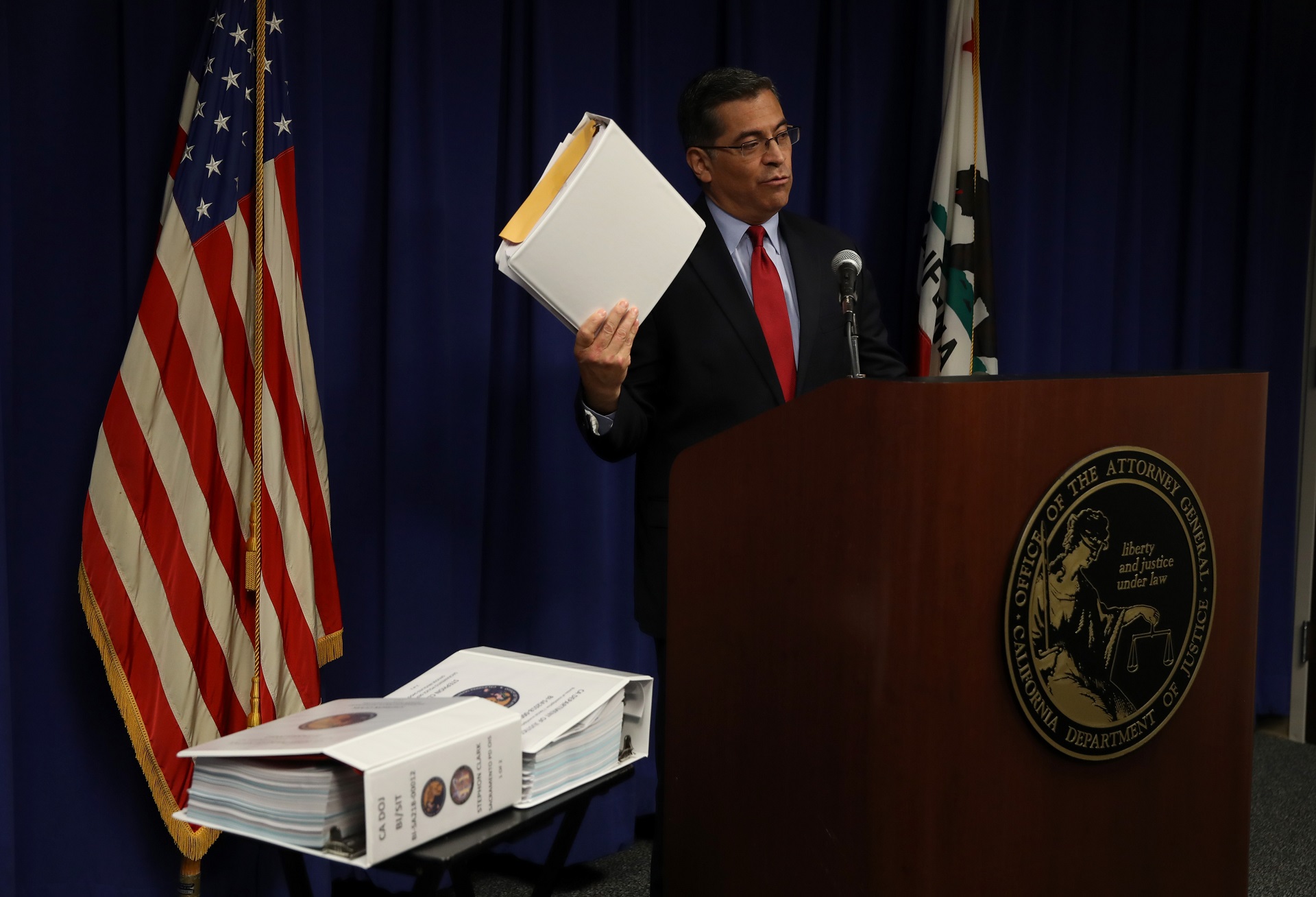The report said Telish tried to keep the relationship secret, but that his superiors heard of it after Drylie reportedly confided in co-workers about the affair. Investigators found Telish lied both to a supervisor who asked him directly about the rumored relationship and to other officials at LA Impact.
The report said Telish then confronted the woman and demanded she tell one of his superiors she had made up the story about their affair. She later told investigators Telish had over 100 sexually explicit photos of her and that he threatened to send the images to her son and others unless she denied the affair. She told investigators Telish coached her on what to say. “He made me perjure myself,” the report quotes her as saying.
Telish said he never threatened or pressured Drylie in any way.
The Department of Justice launched its investigation into Telish after Drylie left her state job in 2008 and took a position as an assistant to the police chief in the Orange County town of Placentia.
In December 2009, the state investigative report recounted, the chief filed a complaint with the state after Drylie told him Telish had assaulted her. The report says Telish held her down on a couch “while trying to review her cellphone messages and call log to determine if she was dating other men.”
The Department of Justice opened a criminal inquiry. An investigator directed Drylie to record her telephone calls with Telish and to try to get him to talk about his past alleged threats and assault.
In one of the eight recorded conversations, Telish appears to agree with the account that he had held her down while he inspected her phone, according to the documents.
The report says Telish was also recorded using a racist slur to refer to an African American supervisor, calling Italian Americans “dirty whiteys” and making sexually degrading comments during the taped calls. The Department of Justice cited those statements in Telish’s termination notice, saying the comments “caused extreme and irreparable discredit to the department.”
Telish said he didn’t remember making those statements, but if he did, it was “banter.”
Other grounds for Telish’s July 2010 dismissal included “inexcusable neglect of duty,” dishonesty, discourteous treatment of the public or other employees, willful disobedience, misuse of state property, violations of rules regulating use of state time or facilities for private gain, and “other failure of good behavior either during or outside duty hours which is of such a nature that it causes discredit” to the state.
The alleged assault was referred to Orange County prosecutors, who declined to file charges.
Telish challenged his firing in appeals to the State Personnel Board, which issued a final ruling against him in August 2011. He then filed lawsuit in Los Angeles County Superior Court. The main basis for Telish’s court challenge was an assertion that the phone recordings were improper and should have been inadmissible in his employment case.
In court papers, Telish’s attorneys said the calls were part of a "sham" criminal investigation. The Superior Court rejected that argument, as did the state’s 2nd District Court of Appeal.
“A participant may properly record a telephone conversation at the direction of a law enforcement officer, acting within the course of his or her authority, in the course of a criminal investigation.” the appeals panel ruled in March 2015.
Telish said in an interview last week he still feels the state’s investigation and his firing were unfair.
“I had an unblemished career until that point,” Telish said. “I felt they shouldn’t be taking my career away.”
The newly released investigative report includes a summary of Telish’s climb with the Department of Justice, where he went to work in 1996. He rose through a series of promotions up to being named one of the top state law enforcement officers in Southern California.
The final promotion came just three months before the altercation with Drylie.
“This has ruined my life. I’m just trying to get along now, and for what?” he said. “If I’m this bad guy they talk about, how did I get as high (in the ranks of the Department of Justice) as I did?”
Asked this week how Telish rose so far in the DOJ, given the charges against him, a spokeswoman responded in an email, "The department did not know of the misconduct that formed the basis for the adverse action until receiving the report of the alleged assault. The matter was then promptly investigated and he was terminated.”
The Department of Justice also released an internal investigation file on the former head of a Santa Clara County drug task force, Danielle Ayers, who was fired in 2015 for lying about an apparent prank to steal copper mugs from a restaurant and for reportedly destroying 10 pounds of marijuana and suggesting the evidence could be replaced by taking drugs associated with another case.


